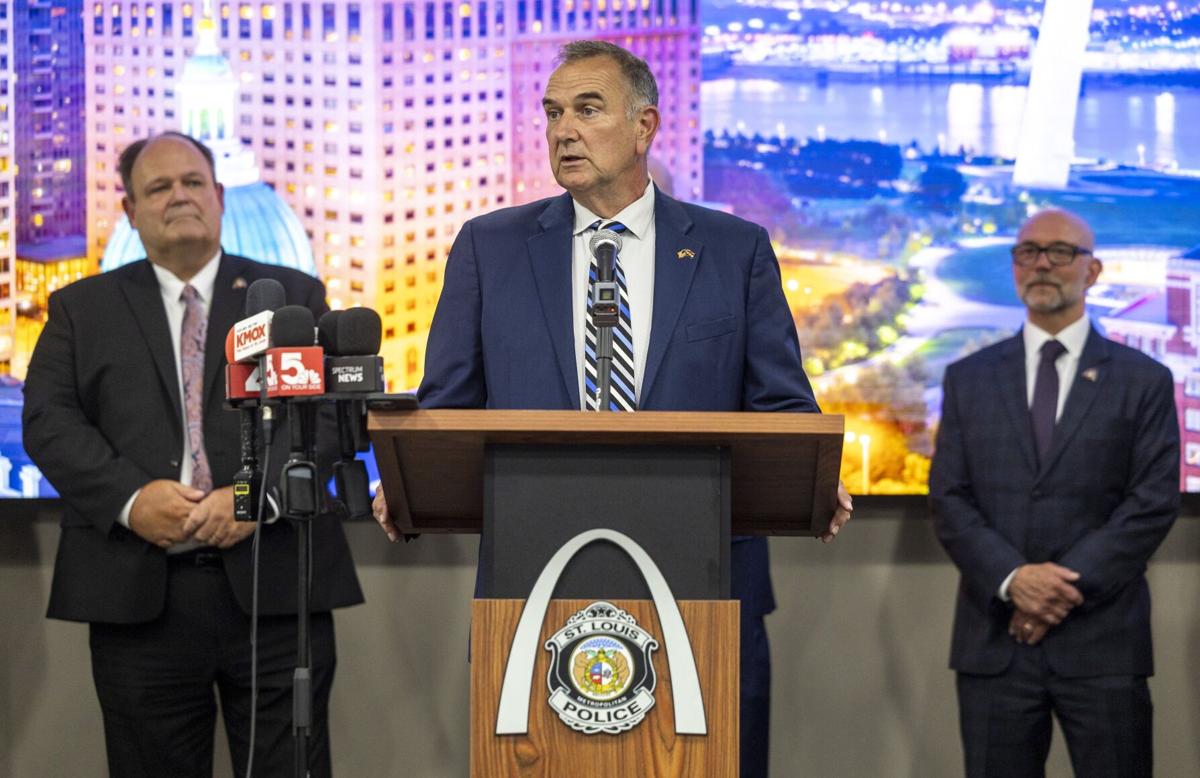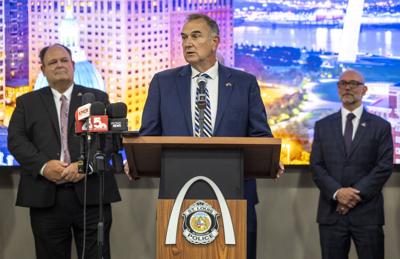By now, it should be obvious to anyone paying attention: TodayŌĆÖs Republican Party, self-proclaimed friend of the working class, systematically and brazenly betrays its own populist rhetoric with fiscal policies that yank governmental services from low- and middle-income Americans in order to pad the pockets of the wealthy.
And, no, weŌĆÖre not just talking about President Donald TrumpŌĆÖs so-called ŌĆ£Big Beautiful BillŌĆØ of tax cuts for the rich and Medicaid cuts for the poor ŌĆö though that obscene tradeoff certainly does epitomize the reverse-Robin Hood agenda of todayŌĆÖs GOP.
Even as the nation was watching Trump struggle to get his budget-busting gift to his fellow billionaires across the congressional finish line last week, a microcosm version of his partyŌĆÖs ongoing plutocracy project unfolded right here in Missouri.
Gov. Mike Kehoe last week unilaterally cut $511 million from the state budget that lawmakers sent him this spring. At one level, his rationale was, well, rational: As the Post-DispatchŌĆÖs Kurt Erickson reports, Kehoe wants a bigger cushion in the budget in preparation for the possibility that fewer federal dollars will flow to Missouri in the coming years.
People are also reading…
ThatŌĆÖs a valid concern, but not a new one. Kehoe, a Republican, certainly knew from before he came into office in January that the pandemic-era federal funding that had been propping up state budgets around the country has now dried up. And the Trump administration has been telegraphing for months its intent to shift more of the burden of federal safety-net programs to the states. KehoeŌĆÖs warning of ŌĆ£difficult budget years aheadŌĆØ has been an obvious one for awhile.
Why, then, did Kehoe, in his first legislative session as governor, champion two measures that will inevitably worsen the stateŌĆÖs fiscal position ŌĆö both of which happen to benefit the very rich?
Kehoe asked for and got from the Legislature a measure to eliminate the state income tax on capital gains. Capital gains are profits made from the sale of assets like stocks or property ŌĆö which, of course, are the kinds of profits that far more commonly flow to the well-heeled. If and when Kehoe signs it (there appears to be no doubt about that), it could cost the state more than $300 million annually in lost tax revenue.
Then Kehoe spearheaded the effort to offer a stadium building incentive package to keep the Kansas City Chiefs and Royals in Missouri. The package could ultimately cost the state more than $800 million ŌĆö tax-funded charity for pro sports team owners, some of the richest people in America.
WeŌĆÖve heard all the arguments about these kinds of policies. But study after study has shown that taxpayer investment in privately owned sports stadiums are a bad deal for the taxpayers.
And the Republican article of faith that high-end tax cuts ŌĆ£pay for themselvesŌĆØ by spurring economic activity has been disproven in the real world again and again ŌĆö most recently by the first Trump administrationŌĆÖs 2017 tax cuts for the rich, which will add an estimated almost $2 trillion to the deficit before even getting into costs of this yearŌĆÖs ŌĆ£Big Beautiful Bill.ŌĆØ
And who in Missouri suffers so the stadium owners and capital-gains profiteers will benefit?
KehoeŌĆÖs cuts came from higher education funding, which means college studentsŌĆÖ tuition bills will likely rise. He cut $7 million intended to help ėŻ╠ę╩ėŲĄ Lambert International Airport build a new terminal ŌĆö a project that, unlike sports stadiums, actually benefits publicly held property. He reduced funding for refugee resettlement in ėŻ╠ę╩ėŲĄ. Road and sewer projects that benefit all Missourians will also take a hit.
Governmental services to regular people, in other words ŌĆö │┘│¾▓╣│┘ŌĆÖs whatŌĆÖs been laid on the altar of supply-side goodies for the 1% in Missouri.
This transfer of wealth from the poor to the rich isnŌĆÖt anywhere near the scale in Missouri as whatŌĆÖs been going on in D.C. lately, of course. But itŌĆÖs worth noting for what it says about the sheer depth of the GOPŌĆÖs hypocrisy every time its politicians present themselves as allies of struggling Americans.












